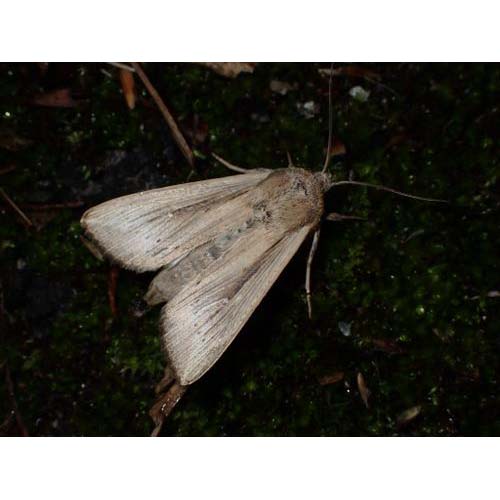


| Latin Name | Mythimna loreyi |
| Common Name | False army worm |
| Biology | A noctuid moth. Larvae (armyworms) are gregarious, feeding nocturnally on foliage; daytime hiding in soil. Adults are strong fliers, attracted to light. Univoltine to multivoltine depending on climate. |
| Damage | Defoliation of grasses (maize, rice, wheat, pastures), with larvae consuming leaves, stems, and panicles. Heavy infestations cause complete crop loss. |
| Distribution Regions | Cosmopolitan in tropical and temperate regions: Africa, southern Europe, Asia, Australia, and parts of the Americas. |
| Monitoring | Light traps; pheromone traps with M. loreyi sex lures; visual scouting for larval feeding damage. |
| Recommended Traps | Universal noctuid traps (e.g., bucket traps) with species-specific pheromone lures or UV light attachments. |

Share your contact information to receive precision-matched pheromone solutions. Should our existing portfolio lack an optimal fit, our synthetic chemistry team will initiate custom development—from molecular structure design to scaled production.